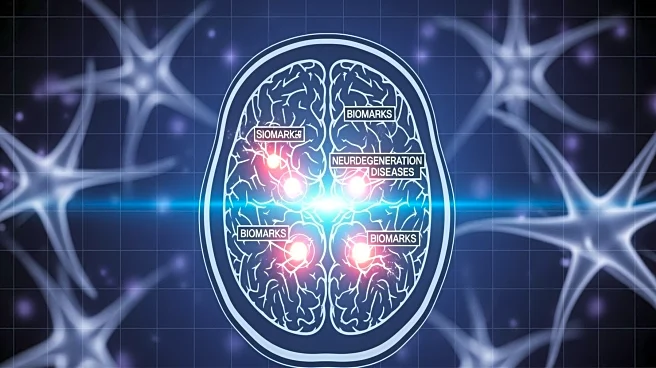What's Happening?
The development and validation of biomarkers for neurodegenerative diseases have seen significant progress, with a focus on microRNA, long noncoding RNA, and circulating miRNA. These biomarkers are crucial
for understanding the molecular mechanisms underlying neurodegeneration and offer potential for early detection and improved diagnostic accuracy. The exploration of protein biomarkers, such as neurofilament proteins and neurogranin, provides insights into synaptic dysfunction and neuronal cell death, contributing to the understanding of diseases like Alzheimer's and Parkinson's.
Why It's Important?
Biomarkers are essential for advancing the diagnosis and treatment of neurodegenerative diseases, offering the potential for personalized patient-specific treatment options. They play a crucial role in enhancing diagnostic processes and are instrumental in the development and monitoring of effective disease-modifying treatments. The ability to detect diseases early can lead to more effective interventions, improving patient outcomes and potentially reducing healthcare costs associated with late-stage treatments.
What's Next?
The continued exploration of biomarkers will likely lead to the discovery of new diagnostic tools and treatment options. As research progresses, these biomarkers may become integral to personalized medicine approaches, offering tailored treatment strategies based on individual biomarker profiles. The refinement of existing biomarkers and the exploration of new ones will further improve diagnostic accuracy and treatment efficacy.
Beyond the Headlines
The ethical implications of biomarker research, particularly in terms of patient consent and data privacy, are significant. The integration of these biomarkers into clinical trials and their potential role in personalized medicine underscore the need for standardized protocols and rigorous validation processes. The transformative potential of biomarkers in neurodegenerative disease research highlights the importance of continued innovation and collaboration across scientific disciplines.









